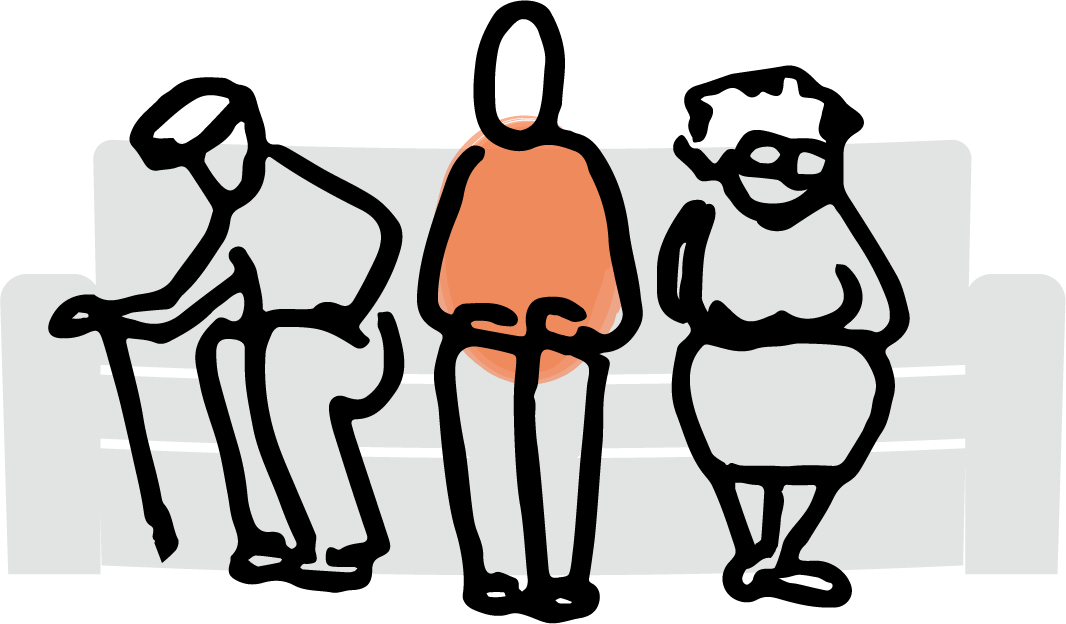Humpty Dumpty Never Saw It Coming
One bad fall changes everything.
The evidence is staggering, says longevity expert Peter Attia, M.D:
“Falling is the biggest cause of accidental death for people over age 65. If you’re over 65 and you break your hip or femur, there’s a 15% to 30% chance, depending on the study, you’re not going to be alive in a year.
And of people who are alive in a year, 50% of them will never again regain complete movement. So even if you’re lucky enough to live, you are debilitated for life. You have lost some critical capacity. It’s just hard to overstate this.”
It’s also hard to overstate how much havoc a parent’s fall can wreak with your own plans and priorities – and how long that fallout will last.
If you want to help your parent stay healthy and independent, talking about fall risk and prevention is essential. But for many families, that conversation doesn’t happen soon enough.
Why You Need to Step Up
One reason for the delay: Waiting for mom or dad to let you know if something is wrong.
Don’t count on it. Fall prevention is one of those loaded “we need to talk” topics. It’s not just about safety. It’s about control and shifting roles. While you’re worried about dad taking a header down the stairs, he’s worried that your anxiety is going to cost him his independence.
Embarrassment is another reason many falls are never reported. It’s not uncommon for adult children to be clueless about dad’s history of falling until an ambulance is involved.
Denial is another problem: “Falling is just a normal part of aging.” (It’s not!) “It was a fluke that won’t happen again.” (It will!)
Finally, mom doesn’t want to be a burden. You’ve got enough to deal with and she doesn’t want you to worry.
Fall Risk Warning Signs
The worst way to find out your parent is at risk for falling is after a bad fall. Humpty Dumpty never saw it coming, but you can watch for these red flags:
Mom has already fallen at least once. Seems obvious, right? But it’s common for parents and their families to dismiss the first fall as a one-time event – especially if no one was seriously hurt.
That’s a big mistake. Fall preventionresearch from the CDC is clear: After one fall, the likeliness that your parent falls again doubles.
Stumbles and near-falls. The only difference between a stumble and a fall is the ability to regain balance or grab something before you hit the ground – or your head – on the way down.
Another way to describe a near-fall is “good luck.” Don’t take it for granted. If dad is starting to stumble, it’s just a matter of time before his luck runs out.
It’s harder to get out of chairs, climb stairs or step up on curbs. This may be a sign of weak leg muscles – a key reason older adults fall.
Mom is holding onto furniture, walls, or other people for support while walking. Does she use a cane or a walker? Poor balance is a major contributing factor to falls.
Your parent is talking a lot of meds. Some prescription drugs for chronic or common conditions can cause drowsiness, dizziness, confusion, blurred vision, or low blood pressure when taken alone or together with other drugs.
Dad rushes to the bathroom. When you gotta go, you gotta go. But hurrying to the toilet greatly increases fall risk – especially at night.
Mom is worried about falling. Older adults who worry about falling are more likely to fall. This anxiety can lead to reduced physical activity, isolation, and depression – which also increase the likeliness of another fall.
Health conditions known to increase fall risk. Some of the most common include dehydration, poor vision, hearing problems, dizziness, sudden drops in blood pressure, hip pain, foot pain, arthritis, Parkinson’s Disease, and dementia.
It’s Always Too Early, Until It’s Too Late
Talking about fall risk and prevention is a conversation that needs to happen, even when your parent appears to be in good health.
Take a lesson from all the healthy older adults in rehab who insisted it was too soon to talk. Until they tripped over a dog toy or slipped on a loose throw rug. It’s always too early, until it’s too late.
There’s no one-size-fits-all magical formula for talking to your parent about fall prevention. Every family and every situation are different.
But there are steps you can take to make it easier for you to connect with your parent as a thoughtful, trusted collaborator, and increase your chances for success.
More about how to do that next week…
For More:
- Falls Free CheckUp (NCOA) – Use this free online tool to better understand your parent’s fall risk.
- 10 Myths About Older Adults and Falls (NCOA)
- Preventing Falls in Older Adults (Harvard Health)
- 10 Types of Medications to Review If You’re Concerned About Falling (Better Health While Aging)
- Evidence-Based Falls Prevention Programs (NCOA)
Thanks for caring,

New to My Aging Parents?
Join us for practical tips and strategies to help you meet the challenges of helping your aging parents. Hand picked and delivered by email biweekly.
No charge. No spam. Unsubscribe anytime.
